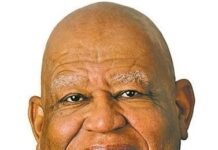According to a new scholarly study, African Americans who believe they have been confronted by racial discrimination are more likely to abuse alcohol and illegal drugs. And the study showed that the perception of unfair treatment can lead to long-term substance abuse problems.
 The study was coauthored by Haslyn E.R. Hunte an assistant professor of health and kinesiology at Purdue University and Adam Barry, an assistant professor of health education at the University of Florida. The article appears in the December issue of the American Journal of Public Health and can be accessed here.
The study was coauthored by Haslyn E.R. Hunte an assistant professor of health and kinesiology at Purdue University and Adam Barry, an assistant professor of health education at the University of Florida. The article appears in the December issue of the American Journal of Public Health and can be accessed here.
Dr. Hunte says, “It’s no surprise that people who believe they receive frequent unfair treatment from strangers feel enough emotional pain that leads them to self-coping behaviors such as alcohol and drug use, but this study shows that there is significant relationship between this poor treatment and chronic substance abuse. Based on this study, clinicians treating people for substance abuse should be more attuned to how discrimination plays a role in their clients’ health, just as the loss of a loved one or losing a job.”
Dr. Hunte is a graduate of Washington and Jefferson College in Washington, Pennsylvania. He holds a master’s degree and a master of public health degree from the University of Pittsburgh and a Ph.D. from the University of Michigan.











Yes, that conclusion makes sense, and clinicians should include: “Have you ever experienced some form of discrimination…” on their in-take forms. Discrimination is such an overlooked area. People are judged by their ethnicity. When someone is called the “N” word, that’s enough to lead them to abusing themselves through substances to escape the insults. Rappers don’t help with the “N” word either!!!
I wonder how this research operationalizes/instantiates the experience of racialized discrimination at the micro-sociological level for persons who are generally unconscious of its objective structural reality for them as individuals? Are there any possible interaction effects between this independent variable and other independent variables that could strengthen the causal correlation?